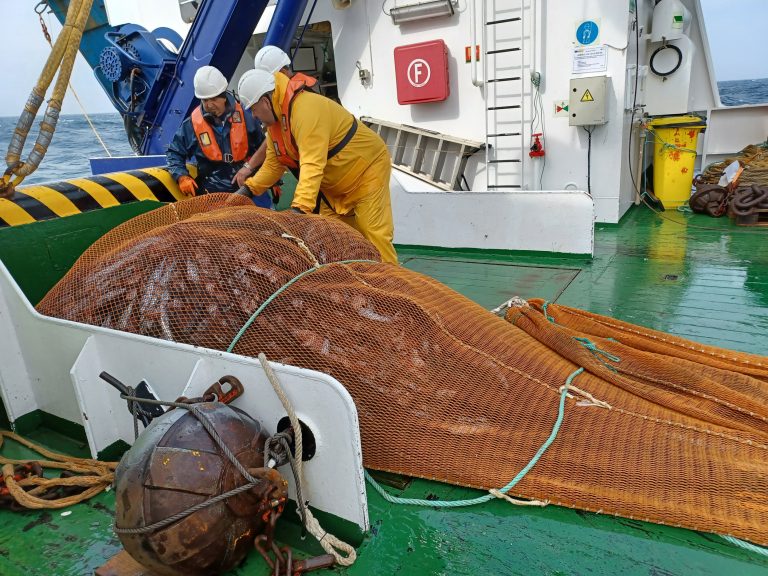Migration towards the poles and changes in seasonal rhythms are common strategies for fish to adapt to rising ocean temperatures. They have often been analysed as separate processes, but new research by AZTI proposes to combine both factors to study in depth how warmer waters affect the most important fisheries resources.
Specifically, scientists from the technology centre have researched the ways in which horse mackerel and Atlantic mackerel adapt their breeding strategies, a critical stage in their life cycle. To do this, they analysed data compiled during the seasonal oceanographic work on these species’ eggs in Atlantic waters since 1992. This study was published in the journal Ecological Indicators.
“We have found that to adapt to this increase in temperature, for every degree the sea heats up the Atlantic mackerel shifts its distribution at spawning time 370km to the north, while the horse mackerel advances its seasonal breeding time by around 12 days,” Guillem Chust, coordinator of the Climate Change area of AZTI, explained.
According to this researcher, the results of analysis of the samples confirm that the biological acclimatisation of fish to warming seas can combine or exclude the time and latitudinal position, depending on the biological features of each species. Moreover, as the migratory changes are small, currently these do not seem to affect fishing for Atlantic and horse mackerel for the fleets in the Bay of Biscay, though these indicators of stocks need regular monitoring as forecasts for climate change indicate the oceans will become warmer than they are now.
“This new knowledge is useful to adapt fishery management strategies and improve future habitat projections in a context where it is essential to study the potential impact of climate change on the marine ecosystem,” Leire Ibaibarriaga, co-author of the study, said.
“Determining the effect of climate change on our oceans is essential to improve conservation of marine resources and manage fisheries and planning of the marine environment sustainably.”
The work was organised by AZTI with European funding under the FutureMARES project, funded by the European Union H2020 programme, and the LIFE IP Urban Klima 2050 programme, the biggest climate action scheme in the Basque Country, coordinated by IHOBE.


